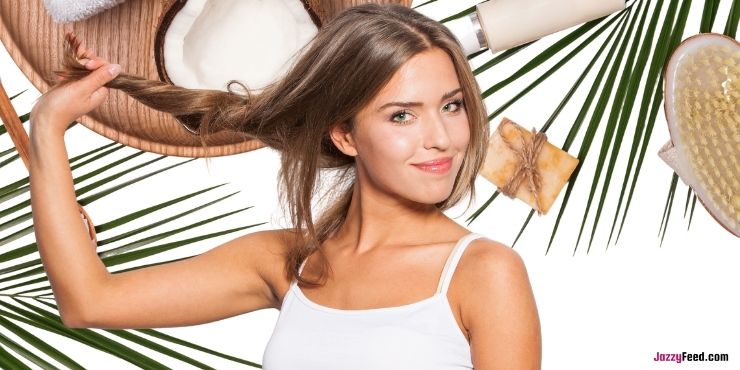You may find it challenging to take care of your hair. Others swear by their favorite popular brands, whereas others praise natural or organic remedies. Making the right decision can often be a challenge. It is essential that you oil your hair at least once a week.
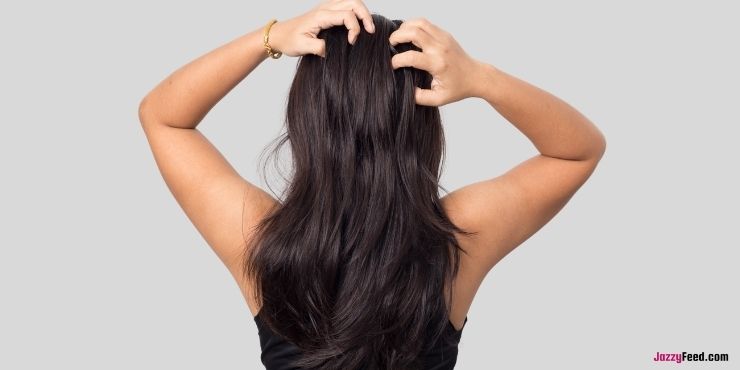
To increase your hair’s strength and improve its texture, this is probably the best thing you can do. Regularly oiling your hair is one of the most effective treatments for hair problems. Oiling your hair will probably eliminate many issues, such as dandruff, split ends, dullness, frizz, hair thinning, and more.
Hair oiling is the practice of pouring oil onto hair and massaging it into the scalp to increase moisture, luster, and shine. Hair oiling may soften the hair and provide vitamins and minerals that get stripped from frequent washing.
This practice has been used in India for centuries and is recommended in Ayurvedic medicine. Hair oiling has spread beyond Ayurvedic practices, and many use it to maintain the health and vibrancy of their hair. It may even reduce hair loss, according to some experts. There are also specific techniques for hair oiling, as well as different oil types you can use to get particular benefits.
Keeping your hair oiled is a smart move for many reasons.
1. Helps to Soften Your Curls
Curly hair dries up much faster than straight or wavy hair. Your hair becomes frizzy and very hard to manage when it is dry. It’s a good idea to oil your hair strands with olive, coconut, or almond oil since it helps you achieve soft and bouncy curls.

2. Hydrates your Hair
When exposed to the elements, your hair loses its moisture. A lot of hair can fall out due to dry hair. A good way to avoid this is to apply oil to your hair before taking a shower. Coconut oil should be applied to your hair several times a week, and we promise you will experience softer hair.
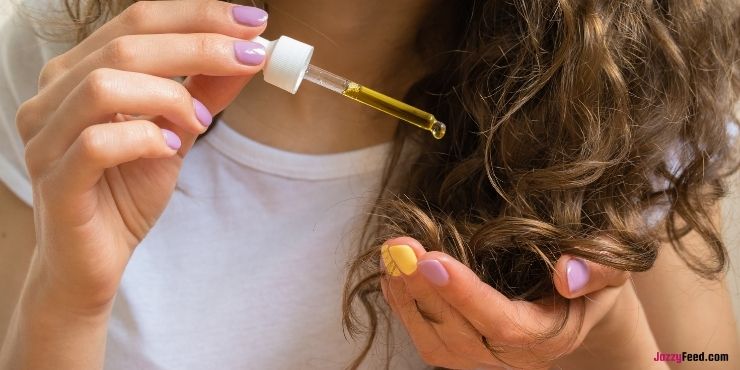
3. Increases Blood Circulation to the Scalp
Using lukewarm oil to massage your hair and scalp can help rejuvenate your hair and improve blood circulation. You may benefit from regularly oiling your hair before washing it off and keeping a hot towel wrapped around your hair for about twenty to thirty minutes to better absorb oil. In addition, it strengthens your roots and soothes and relaxes you. Immediately after oiling your hair, you may not notice a drastic change, but you will see less and less hair fall over time.

4. Can Help Improve Your Hair Growth
Women in countries like India, Indonesia, Thailand, Brazil, and even New Zealand swear by coconut oil to increase their hair growth. Similarly, almond oil is widely used in the USA, Japan, and even Europe. There are many parts of the world where people believe that oiling their hair has positive effects, no matter where you go. If you want your hair to grow, you must nourish it, and the best way to do this is by oiling it.
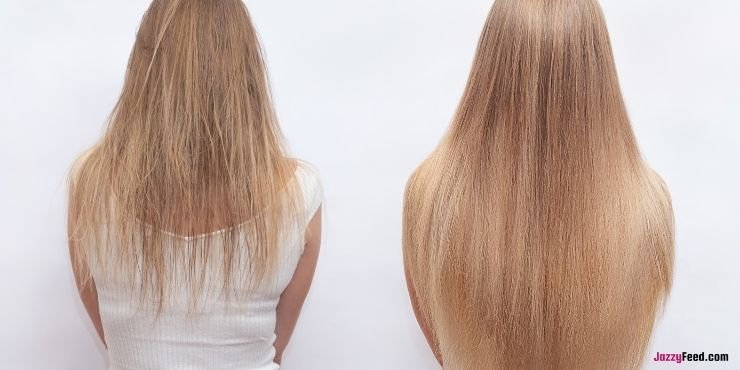
5. Prevents Hair Fall And Nourishes Hair
You can also prevent hair fall and nourish your scalp by oiling your hair daily. Hair strands can be massaged with oil to improve blood circulation to the scalp and strengthen its roots, which can lead to less hair loss. Furthermore, it is essential for removing dead skin cells and revitalizing fine and thin hair.
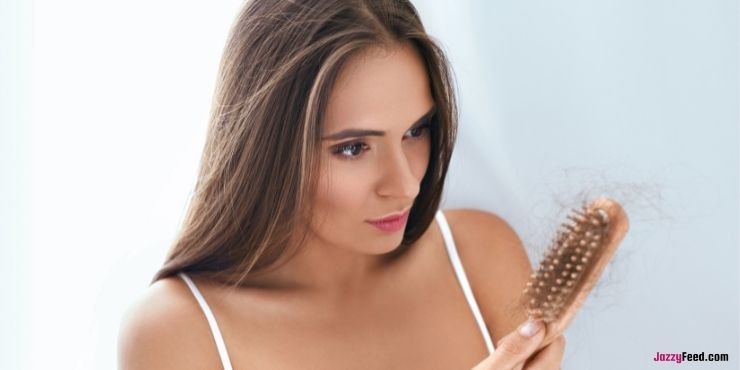
6. Can Lower Your Risk of Encountering Lice
A dry scalp is highly attracted to lice due to the bacteria present there. Oils protect your skin and exfoliate it as well. Olive oil, for example, has antibacterial properties. Therefore, oiling your hair prevents you from catching lice.
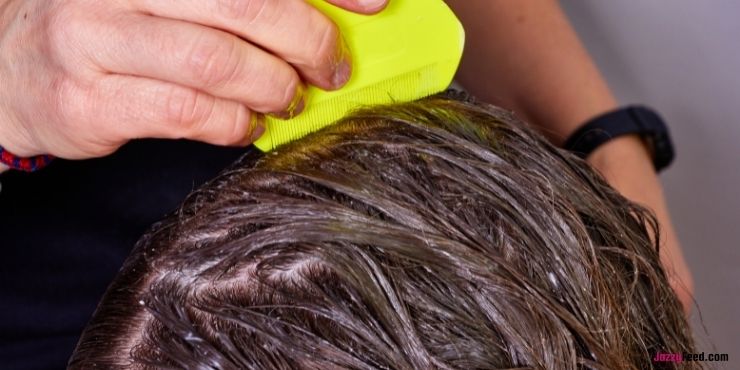
7. Strengthens Your Roots
When you apply oil to your scalp regularly, it helps exfoliate your skin and eliminate harmful toxins from your hair. Your hair follicles can become blocked by these toxins, causing damage to your roots. Oiling your hair unclogs these toxins, as well as replenishing lost vitamins and minerals.
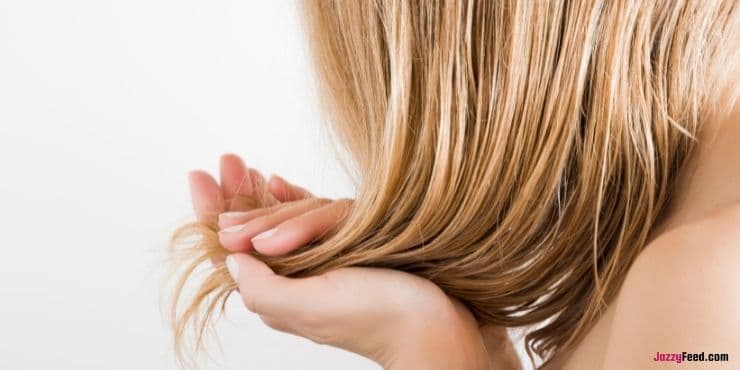
8. Prevents Bacterial Infections
You use antibacterial oils most of the time. In order to prevent damaging bacterial infections caused by exposure to external factors, it is necessary to apply them to your scalp. The bacteria left behind by hair and dead skin cells may also cause terrible infections. All of these conditions can be treated with hair oils.
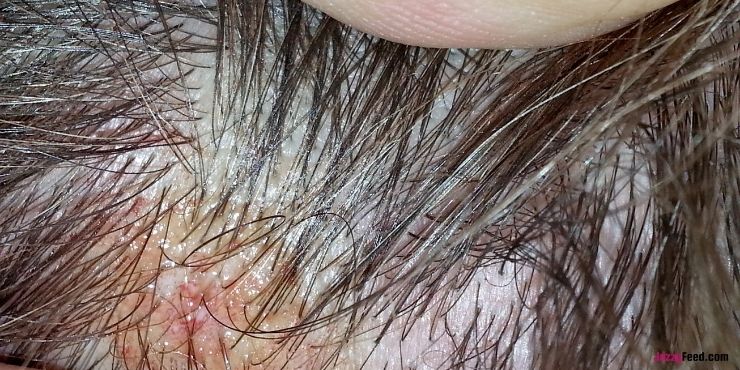
9. Helps Prevent Dandruff
Basically, dandruff is a result of a very dry scalp. Having a dry scalp can cause you to find dead skin cells in your hair, which can sometimes lead to hair loss and hair breakage. Dandruff causes your hair to suffer severe damage because of its blockage. Massage your hair strands with a generous amount of oil to prevent your scalp from becoming dry and flaky.
Aside from providing all the basic nourishment your hair needs, oiling your hair has many benefits. Additionally, it acts as a barrier against the harsh environment and nourishes your hair from within.
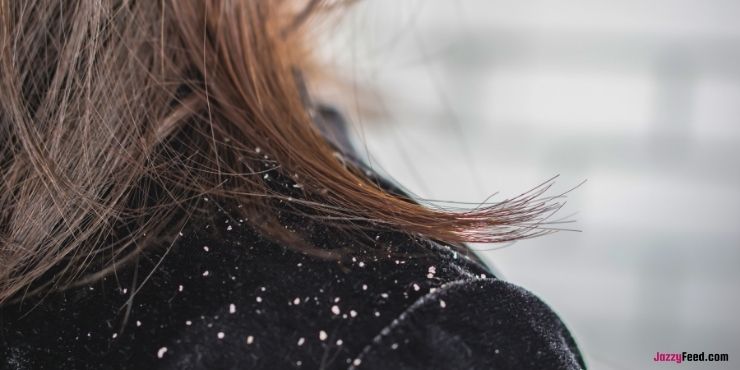
How to Apply Hair Oil
Massage the oil into your scalp to increase blood circulation, which may aid in hair growth. Applying oil to the scalp may also help to keep dandruff at bay.
To experiment with hair oiling, follow these steps:
- Apply oil to your scalp and massage in a circular motion with your fingertips.
- Apply the oil that has remained on your palms to your hair.
- Leave on overnight, covered with a towel or shower cap.
- The next day, shampoo your hair while it is still damp. Thoroughly rinse.
- Maintain normal conditions. Coconut oil can also be used as a hair conditioner.
Benefits of Oiling Hair
Oils are essential for protecting hair from everyday wear and tear. Regular hair oiling reduces hygral fatigue, or swelling and drying of the hair. By filling the gap between cuticle cells, oils protect the follicle from surfactants.
Oil promotes scalp health. Gently massaging the scalp helps exfoliation and sometimes reduces hair fall. Fatty acids aid in the replacement of lipids in the hair. These are depleted as a result of chemical treatments, styling, or even pollution.
Lipids play a critical role in making hair look and feel healthy. They help keep the shine and gloss of the hair. Oil, helps strengthen the hair shaft, particularly in cases of frizzy or dry hair. It works best if the oil is left in the hair overnight.
What Kind of Oil Should You Use
The type of oil you use will be determined by the needs of your hair. Different types of oils have different vitamins and direct application of these oils strengthens the shaft of the hair.
Keep in mind that when using oil on your scalp, it’s a good idea to test to make sure you don’t have an allergy. Before using oil in your hair for a full treatment, perform a patch test.
Coconut oil
Virgin coconut oil is the most popular hair oil. Lauric acid is its main fatty acid. It has a high affinity for hair protein, which means it binds to it and can easily penetrate the hair shaft. As a result, it is one of the best oils for reducing protein loss in both damaged and undamaged hair.
The oil is light and can easily penetrate the hair shaft due to its low molecular weight. Coconut oil can deep condition your hair, provide natural protection, and is a good choice for most hair types.
Sesame oil
Sesame oil, which is ideal for vata hair, reduces frizziness and may help prevent split ends.
It contains a lot of vitamin B1, calcium, copper, phosphorus, iron, magnesium, manganese, and zinc. Sesame oil also deep conditions the scalp and smoothes the hair shaft. Its antibacterial and antifungal properties may aid in the prevention of dandruff.
Almond oil
Almond oil is slightly lighter in weight than sesame oil but slightly thicker than coconut oil. It is a good oil for pitta people. Almond oil contains vitamins B, K, and E.
Vitamin E has the ability to reduce oxidative stress. Taking vitamin E orally for 8 months resulted in a 34.5 percent increase in hair growth, though it’s important to note that results may vary greatly when applied directly to the hair.
Biotin is another name for vitamin B7. It may also aid in hair growth, though research is limited, particularly when it comes to topical application.
Jaborandi oil
Jaborandi is a South American tropical forest herbal plant that is widely used in shampoos and gels.
Jaborandi is more therapeutic than most oils and may aid in hair growth, nourishing a dry scalp, and preventing premature greying. It also hydrates the hair and may help to prevent split ends and dandruff.
Argan oil
Moroccan oil is another name for argan oil. It is high in vitamin A, C, E, antioxidants, and omega-3 fatty acids. It works as a natural conditioner and strengthens the hair.
Moringa oil
Moringa oil is effective for dry hair. It contains oleic acid, which makes it a good hair moisturiser. Combining Moringa oil with a carrier oil like almond oil.
Bhringraj or amla oil
Aside from the oils mentioned above, bhringraj oil or amla oil for pitta hair. Both oils have a cooling effect and aid in the balance of the pitta dosha.
Banyan Botanicals sells a hair oiling formulation that contains bhringraj oil as well as other herbs such as gotu kola.
FAQs
How Frequently Should Your Hair be Oiled?
Ayurveda suggests oiling hair almost every day as part of a dinacharya, or daily routine, though this may not be feasible for everyone. Oiling your hair at least twice a week, ideally the night before you plan to wash it.
If you can’t leave the oil on overnight, you can oil your hair an hour before bathing and wrap your head in a hot towel. This will extract some nutrition from the oil in a short period of time.
How can I thicken my hair?
Keep the heat setting on low and avoid blow-drying your hair for too long. Try styling your hair with a wider comb that doesn’t pull out hair. To give your hair a thicker appearance, use pomade or a texture spray. Allow your hair to air dry instead of brushing or combing it to add volume.
How long should I oil my hair?
To achieve the best results, massage the oil into the hair for 10-15 minutes before leaving it overnight. You can wash your hair as usual in the morning the next day.
What is the secret to hair growth?
Scalp stimulation encourages hair growth by delivering nutrients to the hair follicles (where hair grows). You can stimulate your scalp by massaging it every time you wash your hair, before bed, or by brushing it. Perform it at least once or twice per day.
Why does my hair fall when I apply oil?
Hair should not be tied after an oil massage, and it should not be too tight because the oil softens your scalp. The oil penetrates the roots, causing the hair’s origins to smooth, and when you tie your hair, it falls out.
Should we comb hair after oiling?
Do Not Comb Your Hair Immediately After Applying Oil
You should never comb your hair right after applying oil to it. After all, your hair is more fragile after oiling, and your scalp is much more relaxed. Hair breakage and loss can be caused by rough combing.
Is overnight oiling good for hair?
The oil promotes scalp health. Oil helps strengthen the hair shaft, particularly in cases of frizzy or dry hair. It works best if the oil is left in the hair overnight.
Can we leave oil on hair for 3 days?
It is also recommended that you do not leave any oil on your scalp for more than one day because it can attract dirt and pollution.
What is a proper hair care routine?
Shampoo, conditioner, and any in-shower products should be applied first, then heat protection, a volumizer or mousse, and a shine serum. After that, dry and style your hair, finishing with a gel (or similar product) and hair spray.
Does oil dry out hair?
Many people use oil as a moisturiser, but no oil can do the job alone. Water is the only source of moisture. If you apply oils to dry hair, even the most silky, softening, non-drying oil may leave your hair feeling dry.
Which oil grows hair fastest?
Argan oil There is a reason why this oil is referred to as “liquid gold.” It is rich in fatty acids, antioxidants, and vitamin E and has a deep golden colour. It is extremely beneficial to the hair and is one of the best oils for rapid hair growth.
Is it OK not to oil hair?
The reason is simple: the oil on your scalp is sebum, not oil. Overproduction of sebum can result in bacterial infection, which can lead to dandruff and other scalp problems.

